Beirut, God is With You
With our partners in Lebanon, we stand together in prayer for the victims of the massive explosion in Beirut, Lebanon. Here we share partner updates and messages.
Read Update from Global Ministries here
Report on the August 4 Beirut Blast from The Middle East Council of Churches
Update from FDCD’s field team
Joint Christian Committee for Social Services in Lebanon helps out after the Beirut Blast
An update on DSPR/JCC work in Lebanon following the explosion in Beirut. The Joint Christian Committee (JCC) is how the Middle East Council of Churches’ Department of Service for Palestinian Refugees (DSPR) is registered in Lebanon. DSPR and the MECC are partners of the Christian Church (Disciples of Christ) and United Church of Christ through Global Ministries.
Video: Beirut, you are not alone
This video from the Middle East Council of Churches (MECC) shares what life is like one month after the Beirut Port explosion that devastated the capital.
The World Council of Churches (WCC), ACT Alliance and the Middle East Council of Churches (MECC) present their condolences to all Lebanese people who lost their loved ones in the catastrophic explosion that ripped through the heart of Beirut on 4 August 2020. We stand in solidarity with the bereaved, the injured, the displaced and the suffering.
From the Forum for Development, Culture, and Dialogue (FDCD)
FDCD Newsletter: Rebuild Beirut
As clean-up efforts are completed and the true extent of the damage of the August 4 explosion is uncovered, many NGOs are turning their attention to the longer, slower process of rebuilding the homes damaged across Beirut. FDCD is happy to partner with other NGOs in this work to provide the most efficient assistance available to those in need. Read more…
Coptic Orthodox Patriarch answers MECC Beirut appeal
In a gesture of love and solidarity and as an expression of brotherhood between the Egyptian and Lebanese citizens, His Holiness Pope Tawadros II, Pope of the Coptic Orthodox Church of Alexandria answered the MECC Beirut appeal in response to the Port Explosion, which occurred on the 4th of August, by relieving the devastated Beirut and its afflicted people. This first contribution was a shipment of food aid and medicines transferred to Beirut airport on board two military aircraft that arrived through a military airlift by the order of Egyptian President Mohamed Abdel Fattah El-Sisi to send aid from Egypt to Beirut. Read more…
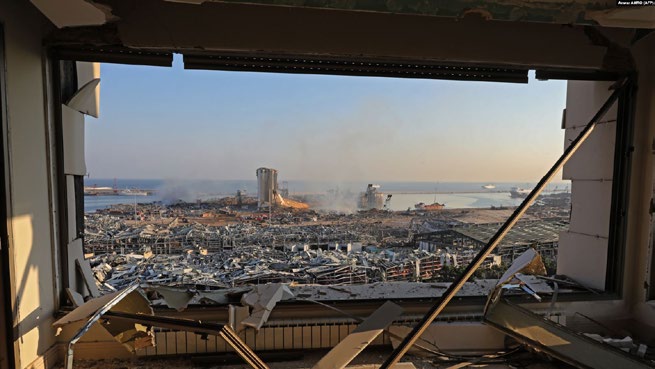
MECC Statement: Support to the devastated city of Beirut and to its distressed people
The Middle East Council of Churches’ Statement to the Churches of the World and to Its Partners: Support to the devastated city of Beirut and to its distressed people
From the Department of Service to Palestinian Refugees
On August 4, 2020, at 7 pm local time, all buildings in Beirut felt the earth shake beneath them. As I live on the 10th floor of a 12-story building, my immediate reaction was to run down the steps as an earthquake was about to demolish my building, But seconds later a brief and sharp deafening strong blast stopped me in my tracks and sent me to the window to look up searching for Israeli planes bombing us, an experience we have had before. But a clear sky told me I was mistaken and so I ran to the balcony looking for smoke. Looking down I saw huge window frames flying down from the 4 flats beneath me landing on the parked cars. My immediate reaction was to look with my heart pounding, for the children of our doorman who play most of the day with their toys in a small area right to the side of the parked cars where the window panes had fallen. Relief engulfed me when I saw they were not there. But my mind raced. What happened?!?! Whom shall I ask?!? No radio or TV as it was not our turn to have electricity. I then remembered my battery-run radio which saved me and I started to hear the horror of what was happening as our excellent reporters had arrived at the scene and were trying to relay what was happening. As the electricity came on, I sat dumbfounded watching what was happening on the television and horrified by what I was seeing. Suddenly, the doorbell rang and my two grandchildren, who had gone to the mountains the day before, stood there. “Our house has been hit,” they said, “And our parents have gone to check.” Expecting a quick return of the parents, I was shocked to hear from them an hour later that the debris on the streets to their house in the Rmeil area of Ashrafiyeh was preventing them from reaching it.
They also reported seeing the big Orthodox hospital of Beirut next to their house badly hit. Upon their return, the expression on my daughter’s face told the story. Their apartment, one mile and a half away from the scene of the explosion, was badly hit and most of the contents damaged. We all looked at each other connected with one thought: thank God they were not in their house when the explosion happened. The next morning, the horror of what had happened began to unfold. A colossal explosion had taken place at the Beirut Seaport which destroyed it completely.
A large number of the one thousand persons who worked there had disappeared under the rubble or in the sea. The main grain silo, which holds around 85 percent of the country’s wheat was destroyed and so were many containers storing vital necessities of life such as medicines and life-sustaining equipment were also gone. All the buildings across from the port were very badly damaged including the huge building of the administrative offices of the electricity company of Lebanon. The Lebanese Civil Defense and the Red Cross came to the rescue, evacuating the injured. The last to be rescued was the badly injured CEO of the company, who is still struggling for his life.
Parallel to the port street on a higher level is the historic Jemaizeh street with its beautiful old Lebanese style buildings. It is one of the very few remaining old streets depicting the history and traditions of old Beirut. In a split second these historic buildings started to fall. People screamed as many disappeared under the rubble while others tried to escape. The same scene extended to many streets arriving at the extensive Orthodox hospital where many of the patients and staff had no chance of survival as parts of the structures fell upon them.
Searching for missing people continues as many carry the pictures of their loved ones and go around hospitals and morgues looking for them. Credible reports state that some 2,750 tons of ammonium nitrate unloaded from a disabled vessel in 2014 had been stored in a port warehouse. An accident – undetermined cause yet – caused the ammonium nitrate to explode. As time goes on, the consequences of this explosion will be even more serious than the immediate casualties and property damage. The port will no longer be able to receive goods, especially troubling since Lebanon imports 80 percent of what it consumes and the government has lost one of its major income revenues.
Also, the timing couldn’t be worse as an economic crisis has devastated Lebanon for several months. The country’s currency has collapsed, as a result of years of mismanagement and corruption. Hundreds of thousands of people can no longer buy food, medicine, or fuel. The Lebanese watch helplessly as they see their savings wiped out and their purchasing power disappear. Meanwhile, the Coronavirus crisis still goes on and has placed great pressure on the health sector with patients filling the hospitals. The damage sustained by three of the main hospitals in Beirut as the result of the explosion has further reduced the capacity of the hospitals to cope with the injured causing many of the hospital staff to use their parking lots for emergency care.
The Palestinian camps are far from the port where the explosion took place. Yet the JCC centers (Joint Christian Committee for Social Service in Lebanon) in 2 of the nearer camps to Beirut, namely Dbayeh to the north, 10 miles away from the port, and Sabra to the southeast of Beirut felt the explosion. In Dabyeh, they felt the shaking and ran out fearing an earthquake while in Sabra, the glass of many windows was shattered and some doors were wrenched out of place.
At present all our youth and especially the youth of Dbayeh camp, who have been trained in helping others especially with the developmentally disabled and the elderly, are working on different possibilities of how to help. This is the time to help a country that has hosted the Palestinian refugees for so many years and we intend to do whatever we can to show our gratitude with the hope of getting help from our friends and partners.
Wishing all of you continued safety.
Sylvia Haddad, Executive Director
From the Near East School of Theology
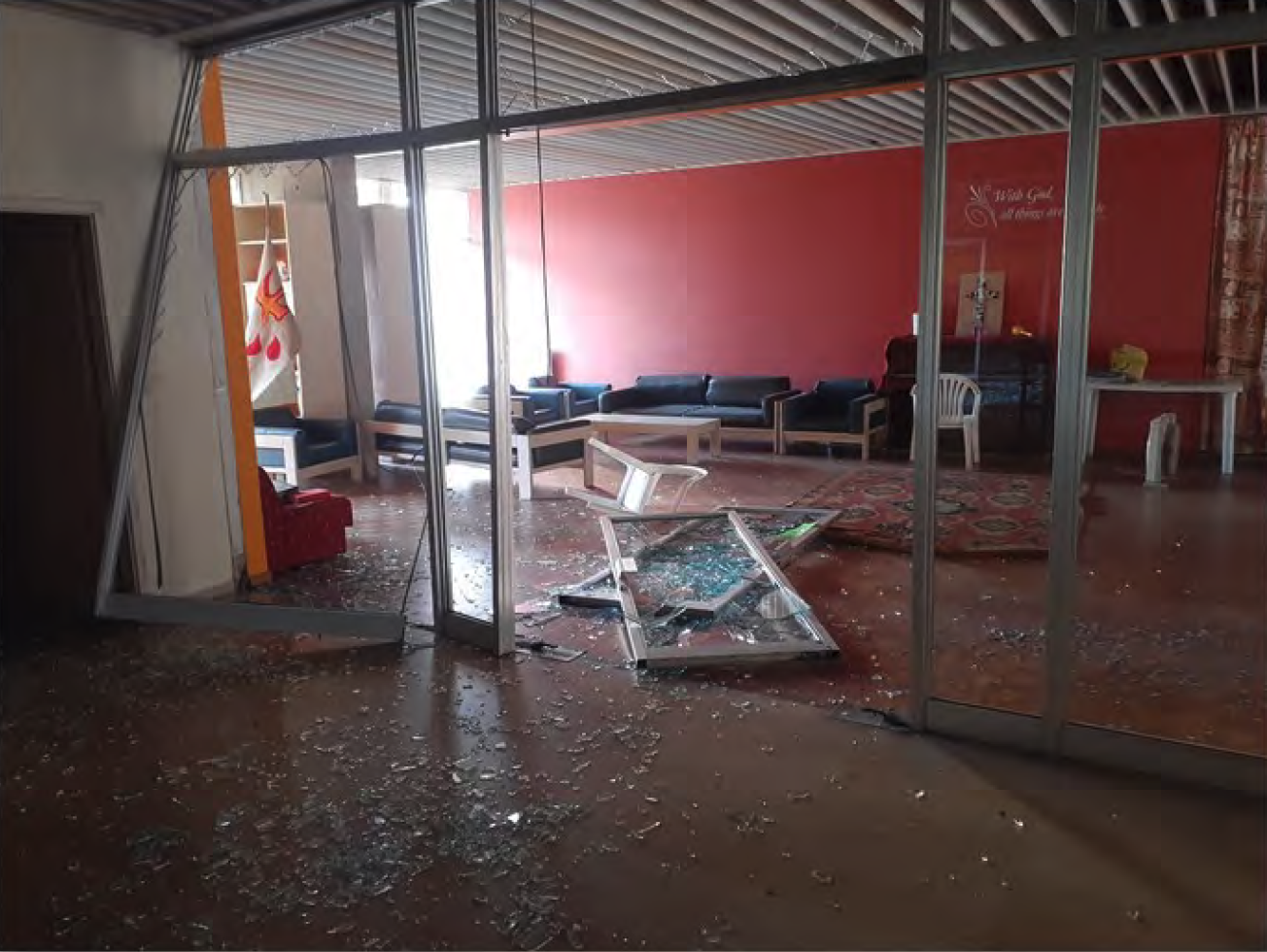
Dear Friends,
We thank God that no one was injured at NEST as a result of the huge explosion that devastated most of Beirut Tuesday night at around 6 pm. There were not many people in the building, but those who were escaped unharmed. The damage to the building is extensive. All eight floors above ground and two basements were hit. Glass windows, glass doors, glass panels inside the building, as well as many internal wooden doors were shattered. Never has NEST been hit so badly as yesterday, not even during the worst days of the 15-year war in Lebanon. Of course, we are not the only ones. The devastation in the rest of Beirut is vast.
Your response to our crisis has been overwhelming. I am truly moved by the expressions of sympathy, concern, and support which my office has received in a shower of e-mails. To know that NEST has so many true friends and supporters is a great source of comfort and encouragement.
On the first morning after the explosion, our employees and staff started cleaning the debris; we had to hire extra help, in addition to all those in the building who volunteered to help. The cleaning process has been continuing for three days so far. We have no illusions about being able to replace the glass and the doors soon. There is a great demand for glass panels and repairmen in the city. We will be trying to cover the shattered windows and doors with nylon for the time being. The cost of repairing the damage will be enormous. We do not have an estimate yet, but it will be in the thousands of dollars.
The impact of the explosion on Lebanon far exceeds the damage done to buildings and property. The Beirut Port which was almost totally annihilated by the explosion is the storage place for all the necessary imports that Lebanon needs at this difficult time in its severe economic and pandemic crisis: wheat, medications, medical equipment, foods… All of these have been severely damaged, if not totally destroyed, by the explosion, and Beirut Port will not be able to resume its operations in full capacity anytime soon. The Lebanese people, and all who reside in this country, stand to suffer further due to this horrible event. So far, there are 135 confirmed fatalities and 5000 wounded, and many are still missing.
Thank you for your support and love of NEST.
God bless you all.
Dr. George Sabra
President
Near East School of Theology
From the Department of Service to Palestinian Refugees (DSPR)
Dear Partners, Friends, and Colleagues,
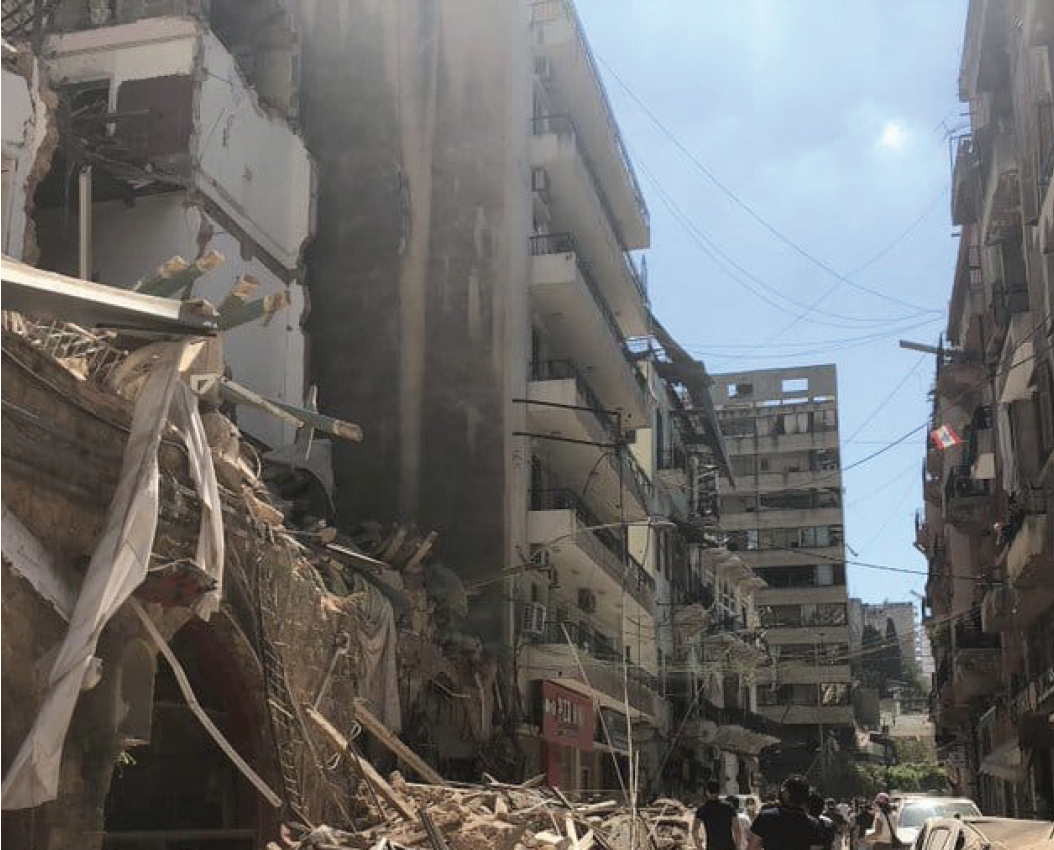
The massive explosion in Beirut was very hard on our colleagues and throughout the Middle East in Beirut. But above all, it hits a country that is currently experiencing a severe economic and political crisis. Lebanon has absorbed well over one million Syrians and is the scene of fierce protests against an ineffective political and governmental system. Our solidarity is with the victims! Since the end of the civil war, the Lebanese state has been focused on just one thing: to provide the various factions of the ruling class with benefit. The fact that tons of highly explosive chemicals were stored in the port, which nobody cared about, is only one of many symptoms of the “failed state” of Lebanon.
NO MONEY, NO FOOD, NO DRINKING WATER
For months now, many households have been unable to withdraw cash or even buy food. Electricity is available only temporarily; medical care is inadequate, necessary infrastructure such as waste collection or drinking water supply often barely works or not at all. The vast explosion, therefore, leads to enormous anger among many inhabitants of Beirut. Many are calling for those responsible to be held accountable.
REPRESSION INSTEAD OF INFRASTRUCTURE
Before the outbreak of the Corona pandemic, Lebanon was the scene of revolutionary protests, with tens of thousands of mainly young people from very different backgrounds taking to the streets together, demanding the end of the ineffective system. Some of these protests lasted until shortly before the explosion.
Repression of these protests has become the norm.
Given the “failed state,” which has so far proved entirely unreformable, the people in Beirut and throughout the country currently have only one thing left to do: to organize themselves through civil society initiatives. Their work urgently needs future support and transnational solidarity – even when attention to the disaster has long since ceased.
DSPR and the Middle East Council of Churches (MECC) are concerned about the recent developments following the disastrous port explosion. Close to 300,000 persons, according to some sources, are now homeless. Homes, offices, and even medical facilities have fallen to the destructive effect of the blast. Lebanese are experiencing gloomy times that quickly turn into depression and other psychosocial ills.
Thank you for your prayers, for your letters of empathy and for your willingness to bond with the people of Beirut and Lebanon at this their hour of need.
Wishing all of you continued safety.
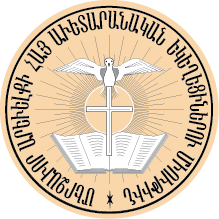 From the Union of Armenian Evangelical Churches in the Near East (UAECNE)
From the Union of Armenian Evangelical Churches in the Near East (UAECNE)
The Central Committee of the Union of Armenian Evangelical Churches in the Near East (UAECNE), at an emergency meeting in Beirut on August 5, 2020, expressed its profound sadness in the aftermath of the massive explosion in Beirut on August 4, devastating not only a huge portion of the city but further debilitating an already overburdened country.
The UAECNE asks churches worldwide to fervently pray for Lebanon and to support in any way possible the work of NGOs, governments, and other organizations, in order to assist the country to emerge from its multiple challenges and difficulties. Homes, businesses, schools, churches, and institutions are all in need of rebuilding. Especially we ask for prayer for the physical and emotional healing of a demoralized people, who see little reason for hope after so many crises. For its part, the UAECNE will be working through its local institutions and the wider community to reach out and offer support as much as is possible at this time.
We express our thanks to the many ecumenical partners who immediately shared their words of solidarity and have offered their spiritual and material support to the Union. May the Spirit of Christ dwell in us richly as we serve as His witnesses in this time of pain.
UAECNE Central Committee
Beirut, August 6, 2020
From The Middle East Council of Churches

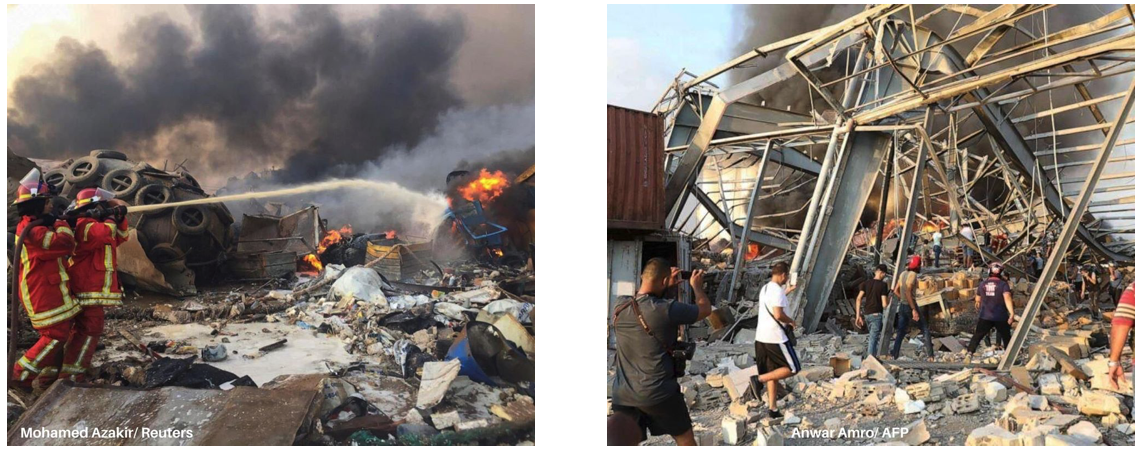
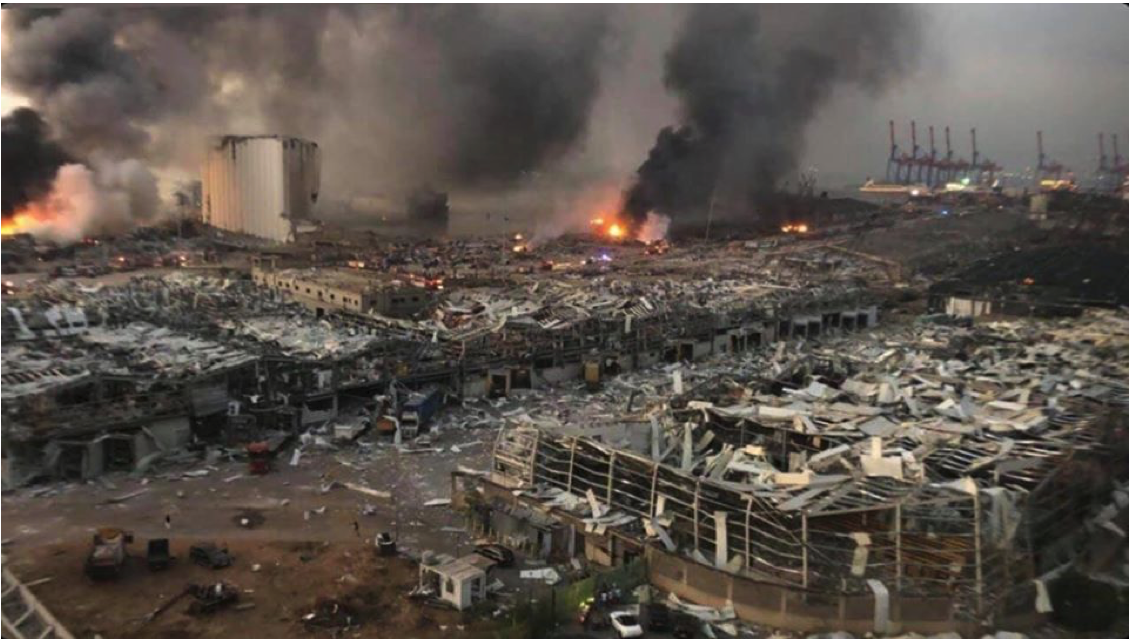
بيروت منكوبة
بيروت في مأساة
لنتضامن معًا
لنعمل على إسعاف المصابين والجرحى والمشرّدين من بيوتهم المدمرّة
لنصلِّ معًا لأرواح الضحايا
اغمر يا ربّ لبنان وشعبه الجريح برحمتك، لا تحجب وجهك عنّا!
#بيروت_الربّ_معك
#نصلّي_لبيروت
#مجلس_كنائس_الشرق_الأوسط
Beirut is devastated
Beirut is facing a tragedy
Let’s stand together Let’s rescue the wounded and those who lost their homes
Let’s pray for the victims
O God, have mercy on our beloved Lebanon and on its heartbroken people. Do not hide Your face from us!
#Beirut_God_Is_With_You
#We_Pray_For_Beirut
#MECC
From The Evangelical Lutheran Church in Jordan and the Holy Land – Jerusalem
Be merciful to me, O God, be merciful to me, for in you my soul takes refuge; in the shadow of your wings I will take refuge, till the storms of destruction pass by. Psalm 57:1-2
Dear partners in ministry,
It is with a heavy heart that I write to you to share the news of a terrible tragedy in Lebanon. On the evening of August 4, two explosions in the port area of downtown Beirut created widespread destruction, injury, and death. As you have likely seen on international news reports, the second explosion leveled the area around the port, tossing cars and blowing outbuildings. The toll in human lives is yet to be known, but as of this writing, more than 100 people are dead, more than 4,000 injured, and hundreds more are still missing. The official cause of these explosions has not been confirmed, but it may have been an accident due to a fire in the vicinity of buildings containing highly explosive substances.
Although there is no institutional Lutheran presence in Lebanon, we are in partnership with a number of Christian ministries in Beirut, including the Evangelical National Church of Beirut, the All Saints Anglican Church Beirut, the Fellowship of Middle East Evangelical Churches, and the Near East School of Theology, a seminary which a number of our ELCJHL pastors have attended. As of now, we do not know of any casualties in these communities, but some of their buildings sustained significant damage. And, of course, the nation of Lebanon has been greatly struggling in recent weeks with the economic and health effects of Covid-19, and with political turmoil. In addition to the loss of life, the infrastructure of Beirut has been significantly affected, including damage to hospitals and to the port area itself, which handles imports of necessary basics such as wheat.
I share this to give you a sense of the extent of this crisis, which is still developing, and to ask you to join me in prayers for our partners in ministry in Beirut and for the Lebanese people. This coming Sunday, August 9, our worship services in all of the ELCJHL congregations will pray for the victims of the Lebanon disaster, and we will hold a special offering to raise funds to support our partner churches in Lebanon as they serve their communities affected by this tragedy. We pray that you will join us in answering the call to serve our neighbors.
In Christ,
Bishop Sani-Ibrahim Azar
The Evangelical Lutheran Church in Jordan and the Holy Land
